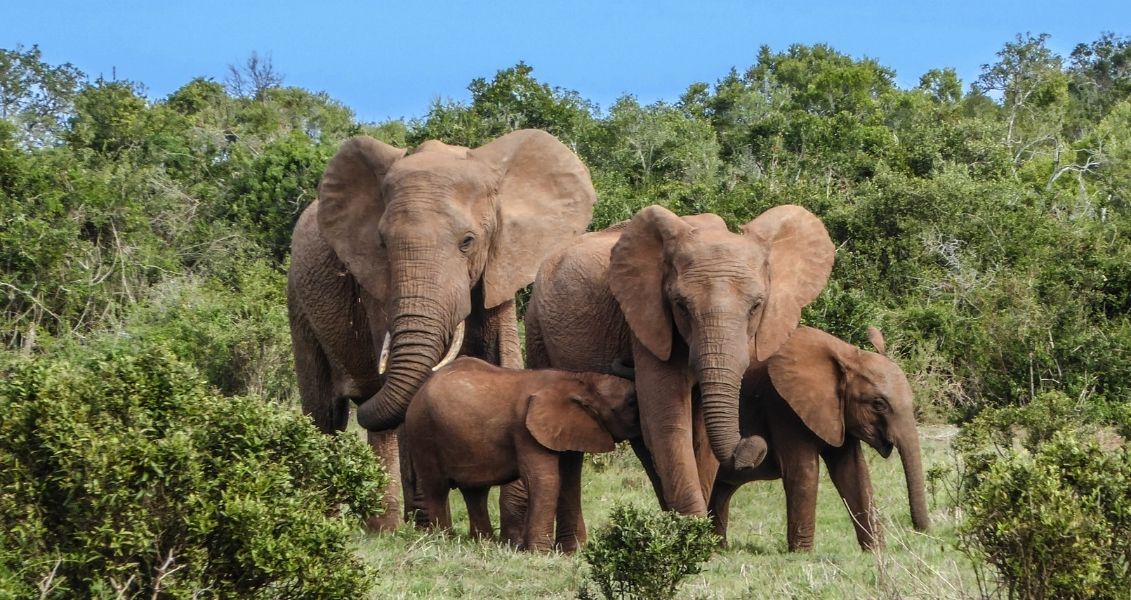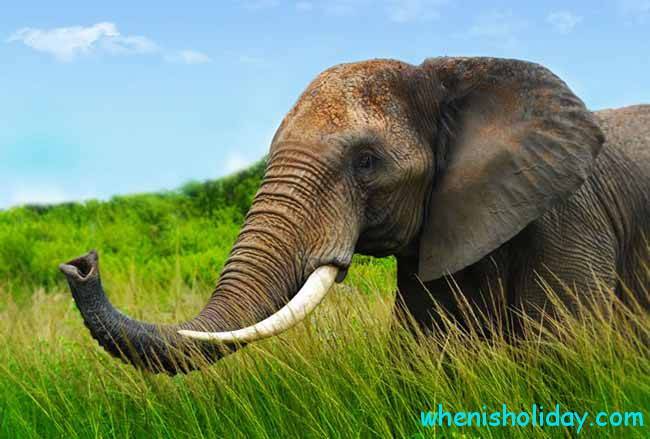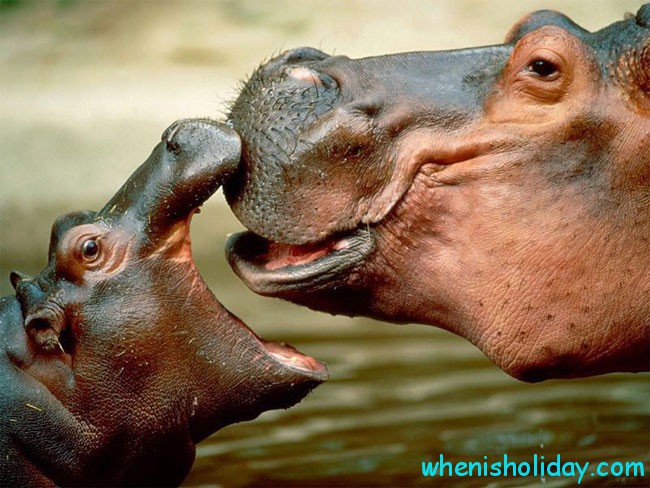World Elephant Day
What is this event?
World Elephant Day, which is celebrated every year on August 9, is an effective means by which organizations and individuals can come together to discuss the risks facing elephants. The holiday has a fairly neutral meaning, which allows and facilitates all organizations and citizens to conduct campaigns under its auspices World Elephant Day. In this way, everyone can support this critical global issue that requires cooperation across borders and political lines. This powerful, collective global voice provides a way for citizens, politicians, policy makers and governments to create and support conservation solutions for these powerful animals. The world should be safe for every wildlife. In 2022 World Elephant Day will be celebrated on Friday, August 9.
How did the idea of celebrating World Elephant Day come about?
World Elephant Day was founded on August 12, 2012 by Canadian resident Patricia Sims in collaboration with the Thailand Elephant Reintroduction Foundation, an initiative of Thailand’s Queen Sirikit. Since then, Patricia Sims continues to lead World Elephant Day. Since its inception, the Global Elephant Awareness System has partnered with 100 conservation organizations around the world and reaches a huge number of people. Millions of participants around the world expressed their concern for the fate of elephants through the recognition of World Elephant Day. In this way, people prove that they love elephants and want to do everything possible to help their population increase.
World Elephant Day is a call to each of us to support organizations working to end illegal poaching and trade in ivory and other wildlife products. This is a call to those in power with issues of protecting the habitat of wild elephants and providing sanctuaries and alternative habitats for domestic elephants to live freely.
World Elephant Society
The World Elephant Society was established in November 2015 as a tax-exempt public charity. The society participates in the organization of the annual action called the World Elephant Day. Patricia Sims is its president and chief executive officer. Every year on International Elephant Day, the World Elephant Society creates and distributes educational information about elephant conservation around the world to the public. This information is made available to the public free of charge through a wide range of media platforms, teacher’s guides for the curriculum and shared on the organization’s website. The vision of the World Elephant Society is to expand this educational work every year.
I wonder about elephants
At the turn of the 20th century, there were more than 10 million elephants in Africa. However, decades of poaching and catastrophic habitat changes have taken their toll on these highly intelligent and social creatures. Today there are only 415,000 individuals. We invite you to take a closer look at the features of elephants on this extremely important day not only for these animals, but also for the fauna as a whole.
What are they like?
In the modern animal world, elephants have two genera and 3 species. So African elephants are divided into forest and savanna. Forest elephants inhabit the forest tropics of the western part of the African continent. At the time when the majestic representatives of the proboscis from the second subgroup settle in the South African and East African savannas. The number and area of the population of these animals is rapidly decreasing every year due to elephant poaching and mindless destruction of their natural habitats. Elephants are extremely valuable to poachers because of their tusks, which command an extremely high price on the black market. According to the latest data, every year from 50,000 to 70,000 animals disappear from the face of the Earth. In just one hundred years, representatives of this genus decreased by 2,000,000 individuals.
The next type is this Asian elephants, they are also called Indian. They inhabit the southern and southeastern part of India, these animals are also found in Thailand, Malaysia, Vietnam, China, Bangladesh, etc.
Elephants differ in large dimensions. The length of some individuals reaches 5 m, and the weight is 7 tons. It should be noted that African elephants are larger than Asian elephants. There are also so-called dwarf forms of elephants.
The long trunk of elephants is quite developed and serves not only as an organ of smell. Thanks to its mobility, the animal can use its trunk to grab various objects, as well as as a container for water. The teeth of elephants are quite developed. For example, tusks grow throughout life, and side teeth change several times.
What role do ears play?
Like the trunk, which has many functions, ears also play a multi-functional role in the large animal body. Yes, in addition to hearing, which is their main task, they also cool the air around the body. Connections of cartilage and blood vessels of the ears, covered with a thin layer of skin. When it’s hot outside, the elephants’ ears don’t stop moving, creating a pleasant cooling breeze around them. This leads to the cooling of the blood vessels located on the ears, and then the cooled blood moves further along the elephant’s vessels. Research shows that the blood in the ears can cool down to 5-6 degrees Celsius.
Another purpose of the ears is to show their aggression. This applies to males, who try to drive away their opponent through active movements of the ears. In addition, the arranged organs of hearing give the animal additional volume and menace. During mating, males have a special smell that spreads for many kilometers.
Period of life
The life span of animals reaches 80 years, sexual maturity occurs at the age of 15 to 20 years. Females bear their offspring for two years. A newborn baby elephant weighs up to 100 kg.
The elephant is a social animal, and males live separately from females. Mothers with their young elephants stay in groups of ten females with offspring, and males form separate male groups, which can include more than a hundred individuals.
Elephant food
Elephants belong to vegetarian animals. To find the plant food they like, they walk tens of kilometers a day. Animals easily overcome marshy and overgrown areas, also elephants are good swimmers and, despite their great weight, easily climb mountain slopes.
The diet consists directly of those plants that grow in the region where the animals live. With the help of their trunks, animals tear off branches from trees, and with the help of tusks, they remove leaves from them. African elephants consume more than 200 kg of plant food per day and drink the same amount of liquid. As for Asian representatives of this genus, they eat almost half as much as their African relatives. It is worth saying that the digestion of elephants is quite weak, because of this their body absorbs less than half of all the food consumed.
How to celebrate World Elephant Day?
The celebration of this day will be interesting for both children and adults. The date can be devoted to watching interesting documentaries that tell about the life of these magnificent animals. And even better, visit the zoo, ride an elephant. But to fully understand the problem of these amazing and majestic animals, it is necessary to learn about the problems they face: poaching and destruction of natural habitats.
It is also worth saying that in honor World Elephant Day, the United Nations Environment Program (UNEP, Wild for Life) has launched an immersive experience that allows you to observe these gentle giants online. Information about this event can be found on the website created specifically for World Elephant Day.
The organizers of the holiday call for:
- Do not buy ivory or other wildlife products.
- Visit elephants in countries where they live in the wild – tourism benefits the economy, provides needed jobs, deters poaching and abuse, and gives you the opportunity to experience the beauty, intelligence and emotional capacity of these magnificent giants.
- If you want to experience elephants in their natural environment, choose ecotourism operators that support local elephant conservation projects and treat elephants with respect and dignity.
- Learn about and support organizations working to protect wild elephant habitats and find solutions to human-elephant conflict.
- Support organizations working to end the illegal poaching and trade of ivory and other wildlife products.
- Support organizations that build nature reserves and alternative habitats for domesticated elephants to live freely.
- Learn about indigenous cultures that have traditionally lived in harmony with elephants.
- Do not buy shade-grown coffee or products with palm oil. These cash crops are grown on plantations that have destroyed elephant habitats. Buy only wood products certified by the Forest Stewardship Council, which promotes responsible management of the world’s forests – the natural habitat of elephants and other wildlife.
- Talk about the elephants in your school. Create an elephant study group to share knowledge and ideas about the plight of elephants and what can be done to ensure their future survival.
When will we celebrate World Elephant Day??
| Year | Date | Weekday |
|---|---|---|
| 2021 | August 12 | Thursday |
| 2022 | August 12 | Friday |
| 2023 | August 12 | Saturday |
| 2024 | August 12 | Monday |
| 2025 | August 12 | Tuesday |


































